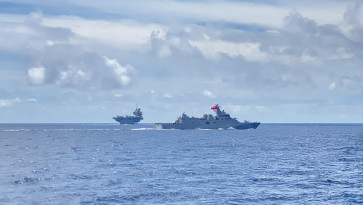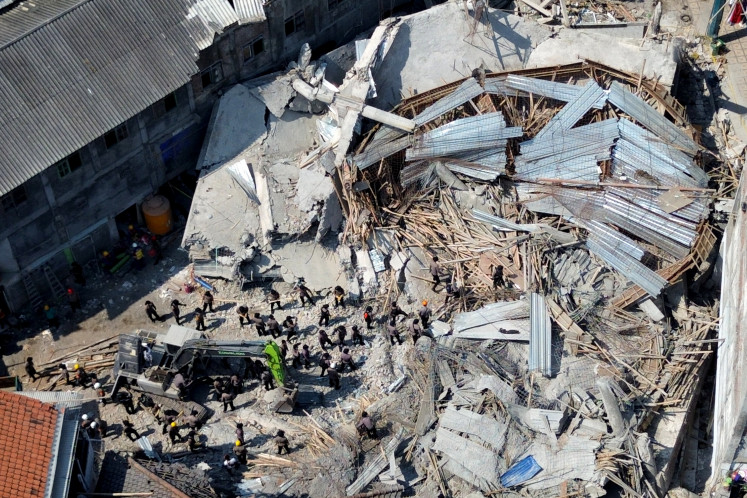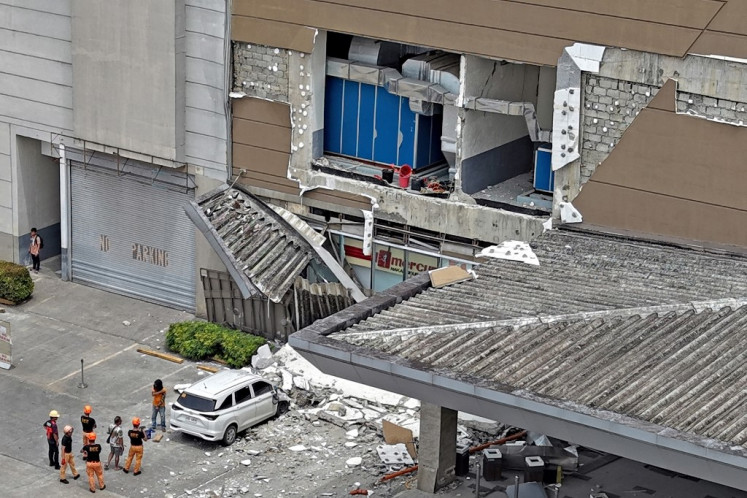Popular Reads
Top Results
Can't find what you're looking for?
View all search resultsPopular Reads
Top Results
Can't find what you're looking for?
View all search resultsCity in dire need of for hazardous waste treatment
Despite the steady growth of the manufacturing industry in Jakarta, many companies are without access to hazardous waste treatment and more are little concerned with how they should properly handle used chemical substance containers
Change text size
Gift Premium Articles
to Anyone
D
espite the steady growth of the manufacturing industry in Jakarta, many companies are without access to hazardous waste treatment and more are little concerned with how they should properly handle used chemical substance containers.
After a three-year dissemination project, the Jababeka industrial estate in Cikarang, West Java, is finally running an independent chemical waste treatment facility that can treat glass bottles with chemical substances.
The retrologistics system was jointly developed by pharmaceutical company PT Merck, Germany-based Deutsche Gesellschaft für Internationale Zusammenarbeit (GIZ), previously known as GTZ, the German government's development bank, and Cikarang industrial estate management PT Jababeka Infrastruktur.
'Under this system, glass bottles are washed, crushed and sold to glass, cement and ceramic companies,' Merck chemical division senior marketing manager Irfat Hista Saputra said recently.
The licensed chemical waste facility, which has been in operation since January this year, has the capacity to treat 9,000 bottles every month that are transported by a licensed transportation service from the industrial zones in Greater Jakarta.
'We have secured a contract with noodle maker PT Nissin Mas. Cooperations with others are in progress,' PT Jababeka Infrastruktur environmental monitoring manager Ayub Arwin said.
According to the 2006 survey by Merck and GIZ, 72 percent of 200 respondents from industrial companies in Jakarta and Surabaya in East Java did not give their chemical container waste to a licensed third party. Only 22 percent of the respondents gave their bottles to a licensed third party, while the remaining 6 percent did not reveal how they disposed of their waste.
Muhammad Askary, deputy staff of Poisonous and Dangerous Substance (B3) Waste at the Environment Ministry, said the chemical waste facility in the Jababeka industrial estate was the first of its kind.
'We conducted a study about it [an integrated waste facility], but there were no investors back then,' he said.
He said the ministry was in the process of encouraging the duplication of the retrologistics system and regulating producers to collect their waste products.
'Once we create a standard and permit mechanism, even scavengers can become entrepreneurs,' he said.
Muhammad said the ministry could only create a policy that encouraged industrial estates to manage their waste. The policy is not obligatory, though, as some industrial areas were built based on design, while others grow outside the spatial planning.
'The government cannot enforce such regulation while the infrastructure is not available,' he said.










